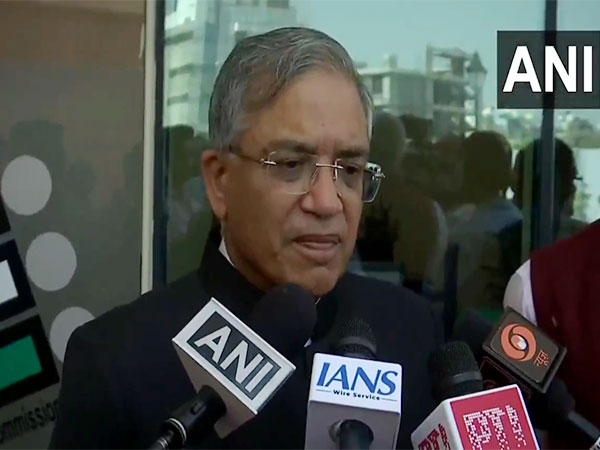China's economic clout forces African countries to turn blind eye to Xinjiang
Sep 27, 2022

Johannesburg [South Africa], September 27 : While the recent report of United Nations Human Rights on China's treatment of Uyghurs and other ethnic minorities in the Xinjiang region has brought global condemnation, most of the African countries were silent on it due to Beijing's heavy economic clout in the second-biggest continent.
Cobus van Staden, a China-Africa expert at the South African Institute of International Affairs, said that because of China's economic clout, most African countries simply don't want to "pick a fight" over Xinjiang, which, to many, seems far away, reported allAfrica.
"We've seen most African countries side with China, and this includes a lot of majority Muslim countries. ... In terms of how the African partners will vote on the human rights council (if there is a vote), I tend to fear that they will probably vote with China," he said.
There are reasons for this, he said. China is Africa's biggest trade partner, far outstripping the West, and a lot of African countries "tend to be quite suspicious of separatist movements and quite suspicious of hardliners or political Islam."
Nigeria, for example, has been plagued by hardliner Islamist groups, reported allAfrica.
The report, published by then-UN human rights chief Michelle Bachelet on her last day in office in August, said China's actions against Uyghurs and others in the Xinjiang region "may constitute international crimes, in particular crimes against humanity," citing abuses such as arbitrary detention in camps, torture and sexual violence.
However, China's ambassador to the UN in Geneva, Chen Xu, delivered a joint statement on September 13, during the 51st session of the Human Rights Council, saying the Xinjiang assessment was "based on disinformation and draws erroneous conclusions."
The statement was signed by 28 other countries, with close to half of the supporters from African countries such as Burundi, Cameroon, Comoros, Egypt, Equatorial Guinea, Guinea, Eritrea, Ethiopia, Sierra Leone, South Sudan and Zimbabwe, reported allAfrica.
Last year, out of 43 countries, only two in Africa, Eswatini and Liberia, signed a UN communique condemning China's policies in Xinjiang. In June, they signed again, but they are rare outliers.
South Africa, the continent's third-largest economy, neither signed the letter supporting China's position nor staked out a position critical of China. Analysts told VOA that South Africa - seen as the continent's leading democracy - has simply mostly remained silent on the issue.
"South Africa, with its proud tradition as a shining example for human rights, struggles now, saying nothing about China's apartheid," said Magnus Fiskesjo, an associate professor at Cornell University's Department of Anthropology, alluding to a system of discrimination and segregation that took place in South Africa from 1948 to 1994.
Analysts say some African countries can relate to China's position, as stated by the state-run Xinhua news agency, that "Xinjiang-related issues are not about human rights, ethnicity or religion at all but about combating violent terrorism and separatism."
African nations, according to observers, are also unwilling to alienate China, their Belt and Road initiative benefactor and the source of massive infrastructure loans, reported allAfrica.
Egypt is among the Muslim countries in Africa that have supported China on the Uyghur issue, says Bradley Jardine, a political analyst who focuses on China and recently published a study for the Wilson Center on China's global campaign against the Uyghurs.
"Across the Muslim world, it's a very diverse region with very diverse strategic interests," he said. "There are a lot of economic interests at play, particularly (with) actors such as Egypt, who in 2017 detained hundreds of Uyghur students and deported them to China."
According to Jardine's research, more than 1,500 Uyghurs abroad have been detained or extradited -- many in North Africa.




















